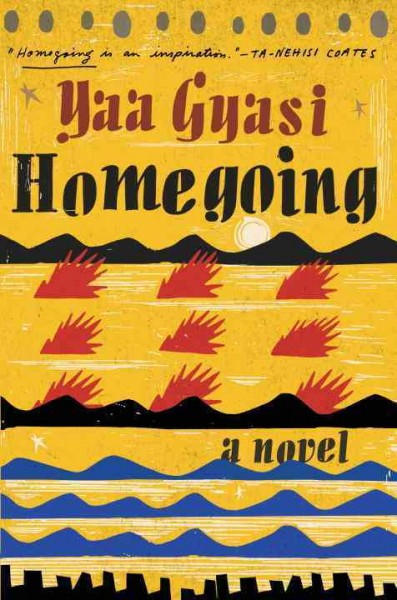by Andrew Hedglin
To be totally honest with you, historical fiction was not really on my radar this time last year when I started working at Lemuria. However, some of the best books I’ve read over the past year—A Free State by Tom Piazza and Free Men by Katy Simpson Smith—have totally turned my attitude around on the genre. And then came Yaa Gyasi’s Homegoing, a book I’d call a masterpiece.
 Homegoing tells the story of two family lines descended from the same woman, Maame: Effia is her daughter born when she was slave in a Fante household; Esi is her daughter by the union with her Asante husband. Effia ends up as the wife of a white English slave trader, whereas Esi ends up herself as a slave, shipped across the Atlantic. The novel follows the descendents of both Effia and Esi each for seven generations, through war and slavery and discrimination.
Homegoing tells the story of two family lines descended from the same woman, Maame: Effia is her daughter born when she was slave in a Fante household; Esi is her daughter by the union with her Asante husband. Effia ends up as the wife of a white English slave trader, whereas Esi ends up herself as a slave, shipped across the Atlantic. The novel follows the descendents of both Effia and Esi each for seven generations, through war and slavery and discrimination.
What’s really fascinating, I think, is that although the characters face experiences emblematic of whole peoples, they never seem less than real people. My heart breaks for Kojo, a shipbuilder in Baltimore who spends almost all his life free, with a large, happy family, yet is isolated in his family lineage on both ends through slavery, not really ever knowing his mother Ness or son H. Or Akua, whose abuse at the hands of a missionary drives her to destructive insanity, only to end as one of the wisest, strongest, and oldest characters in the entire book. Almost every character retains his or her individuality or humanity.
And yet history matters so much. Characters have the free will to make their own choices and shape their own characters, but they are often denied the chance to make a difference in their descendants due to the historical narrative. Personal morality only makes so much of an impact, and often characters have to reach back two generations for strength.
This makes the American line of descendants, starting with Esi, so particularly heart-wrenching. The psychic pain of detachment from home and family can be the most affecting of all the traumas. Although the novel is definitely a book about what it is to be human, it is both distinctly African and African-American, thematically probing how those things are forever connected and disconnected.
There are some words I remember from Ta-Nehisi Coates’ Between the World and Me that kept echoing in my head as I read this book. He’s exhorting his son, Samori, not to confuse his ancestors in slavery with links in a chain. Coates says: “I have raised you to respect every human being as singular, and you must extend that same respect into the past….You must struggle to remember this past in all its nuance, error, and humanity….The enslaved were not bricks in your road, and their lives were not chapters in your redemptive history.” The novel ends on a somewhat hopeful note that the the title perhaps promises, but there are several chapters in the book where, if ended there, could be construed as hopeful. History does not work in a straight line, trending neither strictly upward nor downward. One of the most powerful lessons of Homegoing is not the promise of hope, but the study of humanity, with beauty still present all the same.


Comments are closed.